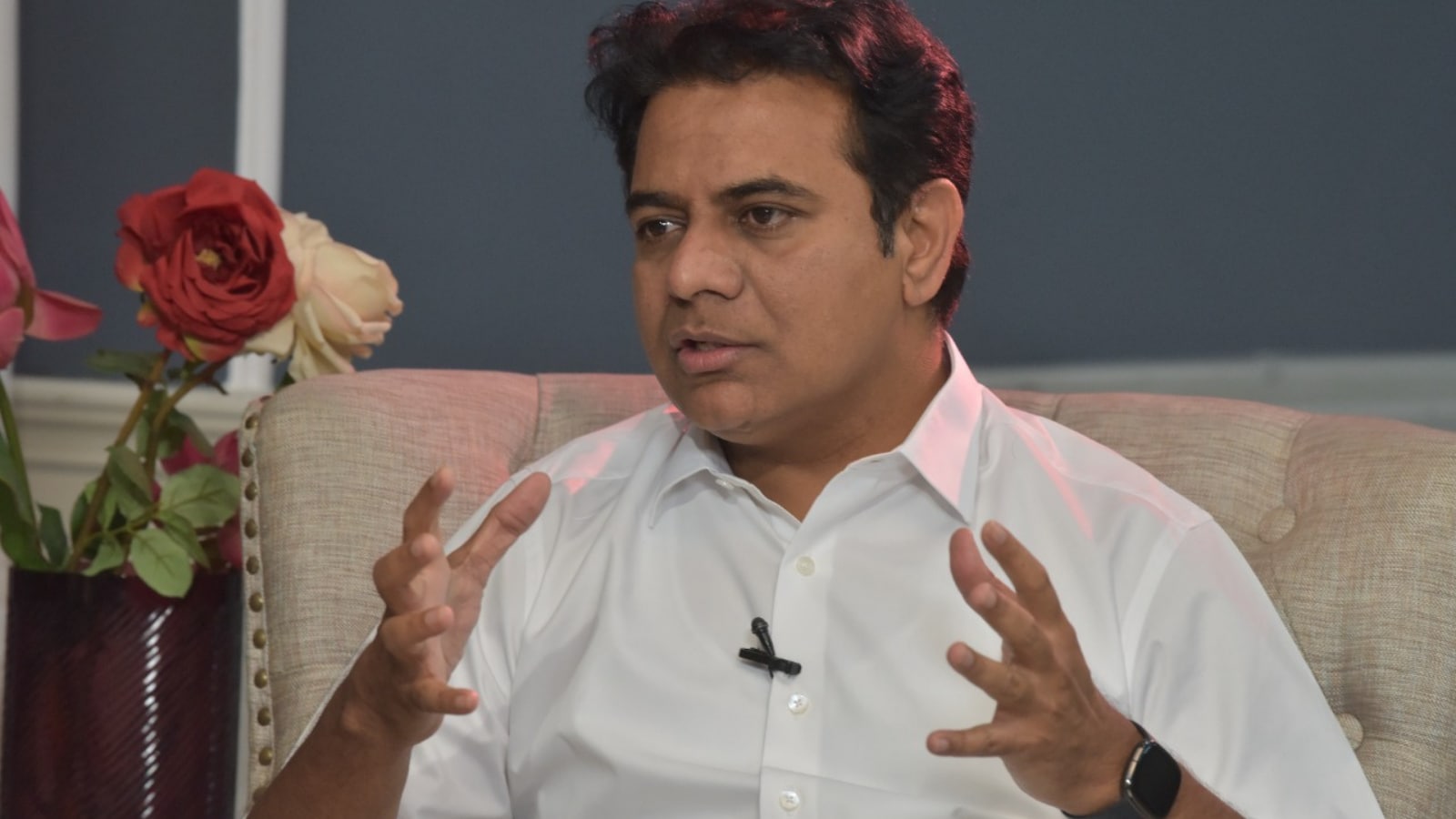Telangana Minister KTR Calls for Greater Transparency in Government’s Use of Facial Technology
Telangana’s Information Technology minister KT Rama Rao said one of the most difficult challenges in using technologies like facial recognition in conjunction with Artificial Intelligence (AI) is gaining citizens’ trust that the government uses such data in an unbiased manner.
According to him, the use of such technology also remains complicated because citizens need to be convinced that they are not under surveillance unless they have been notified.
The minister also stated that the only way to accomplish this is to first determine the regulatory powers that each government organisation will require.
“These powers must be given to them in a Parliamentary and a fully transparent method,” Rama Rao said and added that with the right regulatory outreach, it can make it far easier for police to assist citizens with their needs.
During a panel discussion on “AI on the Street: Managing Trust in the Public Square” at the World Economic Forum in Davos, he said that facial recognition not only has reduced the reliance on physical resources but also decreased the time that authorities take to find out criminals and missing individuals.
The panel discussion also included Takayuki Morita, NEC Japan President and Chief Executive Officer and Representative Director, Angie Nicole OD, Executive Director Ushahidi, South Africa, and Coen van Oostrom, Edge Tech CEO and Founder.
However, he emphasised the importance of transparency, saying that every step in which the government uses facial recognition should be shared with the public first before being used by government organisations.
According to the minister, the government recognises the benefits of facial recognition in regulation and policing. So, the public’s trust in this system must be bolstered by optional systems that can expose them to the method and only then scale up, he added.
Additionally, Rama Rao said: “We need minds that are well-versed in AI, machine learning, blockchain, data sciences and the risks that come with the use of the same. The data being used must be fully secured and the security must be verified.”
Concerns About Facial Recognition
In recent years, many have questioned the accuracy of facial recognition technologies and their role in identity theft.
In some situations, law enforcement services incorrectly implicated innocent persons in riots. Furthermore, many people are concerned about identity management and storage, which is troubling privacy advocates all around the world.
The lack of transparency in how information is stored and maintained is one of the most common societal concerns. Citizens’ fundamental right to be under constant government monitoring and have their photographs kept without their consent is violated by facial recognition.
As per the human rights advocates, face recognition, when combined with omnipresent cameras and data analytics, leads to mass monitoring, which may jeopardise citizens’ liberty and private rights.
For example, in China, this technology has been used by the authorities for a long time. Its use has been growing in the country, from street cameras to apps that need biometric authentication, but a survey by a state media outlet has revealed that Chinese citizens are sceptical of its use in public settings.
Even this technology is also being used by the Chinese authorities to target Uighurs and check their emotions in the Xinjiang region.
However, in the other part of the world, the European Commission has received an open letter from 51 organisations, seeking a blanket ban on all mass surveillance facial recognition software. Similarly, over 43,000 European citizens joined the Reclaim Your Face campaign, which calls for an end to biometric mass surveillance in the EU.
It should be noted that European Commission banned facial recognition technology in public settings for up to five years in 2020 as part of a regulatory overhaul that included privacy and ethical abuse rules.
Despite the concerns related to facial recognition, the American Civil Liberties Union (ACLU) has proposed a few principles which would help to ensure the ethical use of the technology. These are:
• Before adding citizens’ biometric data to a facial recognition database, institutions should get informed, written consent from them.
• The technologies should not be used to determine a person’s skin colour, race, religion, national origin, gender, age, or disability.
• Without the data subject’s explicit, written agreement, the results of a facial recognition technology should not be traded or disseminated.
• Citizens should be able to view, update, and remove their facial data, as well as keep track of any modifications made to the data.
• Organizations must create policies for data compliance and use, as well as the technical mechanisms required to ensure responsibility.
• Face recognition data should be hosted, managed, and secured by organisations with dedicated security personnel—as there is always a risk of cyberattacks and data theft.
• End-users are required to keep an audit trail that includes information collection, use, and disclosure details, as well as the date and time stamps and information requester details.
Read all the Latest News , Breaking News and IPL 2022 Live Updates here.
For all the latest Technology News Click Here

